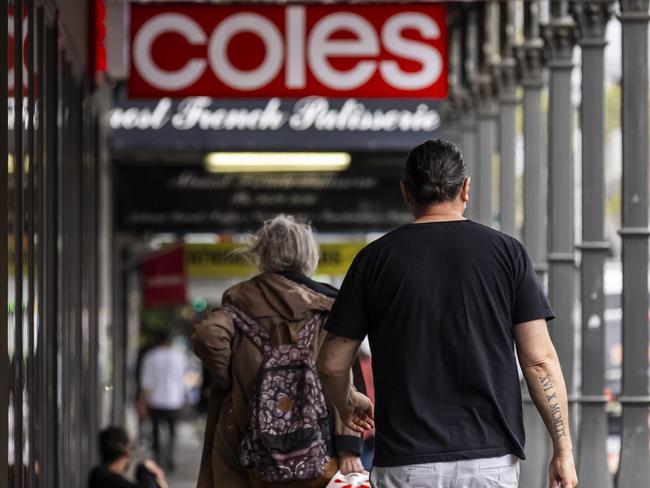Coles wants to become Australia’s most sustainable supermarket
Coles recently ranked number two out of 62 food retailers globally for sustainability and now the supermarket giant wants to go further.
Environment
Don't miss out on the headlines from Environment. Followed categories will be added to My News.
It is said that truth passes through three stages: first it is ignored, then opposed, and finally accepted as self-evident.
In business we see this pattern in the adoption of disruptive technology. In a couple of decades our collective attitude to computers at work has evolved from desktop machines used only during working hours, to laptops carried to and from the office, to handheld devices from which we can rarely escape.
Online shopping, once confined to non-perishables the consumer was happy to buy without touching or seeing, rapidly colonised the fashion sector and now accounts for around 15 per cent of Australia’s grocery and liquor spending, according to figures from NAB.
In the Australian business community, the collective stance on sustainability moved beyond the dismissive stage some time around the release of An Inconvenient Truth in 2006, and after some back-and-forth in the opposition zone we are now firmly in the realm of self-evident.
Our challenge now is to translate this consensus into meaningful, broad-based action.
As the world is on the cusp of pivotal climate discussions at COP26 in Glasgow next week, many Australian companies are yet to incorporate sustainability into their operational strategy.
While the World Benchmarking Alliance recently ranked Coles number two out of 62 food retailers globally for sustainability, it also emerged that only 26 per cent of the 350 companies assessed in the global food and agriculture sector are setting holistic time-bound targets as part of a sustainable development strategy.
Concerningly, 27 per cent did not disclose any sustainability strategy at all.

Even more telling, a survey of 1000 Australians released earlier this month by SEC Newgate found that Coles was one of only six businesses operating in Australia that at least 2 per cent of respondents could name as doing well in the ESG (Environmental, Social, and Governance) space.
At Coles, we have an ambition to become Australia’s most sustainable supermarket and our Sustainability Strategy – which is focused under two key areas of Together to Zero and Better Together – sets out how we will work together with our stakeholders to drive change and create a more sustainable future for generations of Australians to come.
While we are already making progress, including securing agreements with energy suppliers for 100 per cent of our electricity to come from renewable sources by the end of FY25, we cannot reach our goals on our own.
This month, Coles joined 32 other leading Australian organisations as members of the Climate Leaders Coalition (CLC), in supporting a road map to shift towards a low carbon future by 2030. Coles has set a target to reduce combined Scope 1 and 2 greenhouse gas emissions by more than 75 per cent by the end of FY30 (from a FY20 baseline), in addition to our 100 per cent renewable electricity target by the end of FY25 and for net zero emissions by 2050.
Like the other members of the CLC, driving sustainability has simply become part of what we do at Coles – as fundamental to our business model as the devices we use to stay connected in the office (or more recently, at our kitchen tables).
For companies who continue to treat sustainability as a nice-to-have, or who think that their peers taking action are doing so for altruistic motives out of step with the hard truths of business, let me make this appeal to those of a more mercenary mindset: sustainability is self-preservation.
It’s not about trees, or emissions, or waste reduction, or recycling. At its very core, sustainability is about figuring out how to make sure your business is around tomorrow. The reality is that if your business is not sustainable, you simply won’t have a business.
We all need to set ambitious targets, but we also need to act on them. Now.
Thinus Keeve is Coles’ Chief Sustainability, Property and Export Officer


